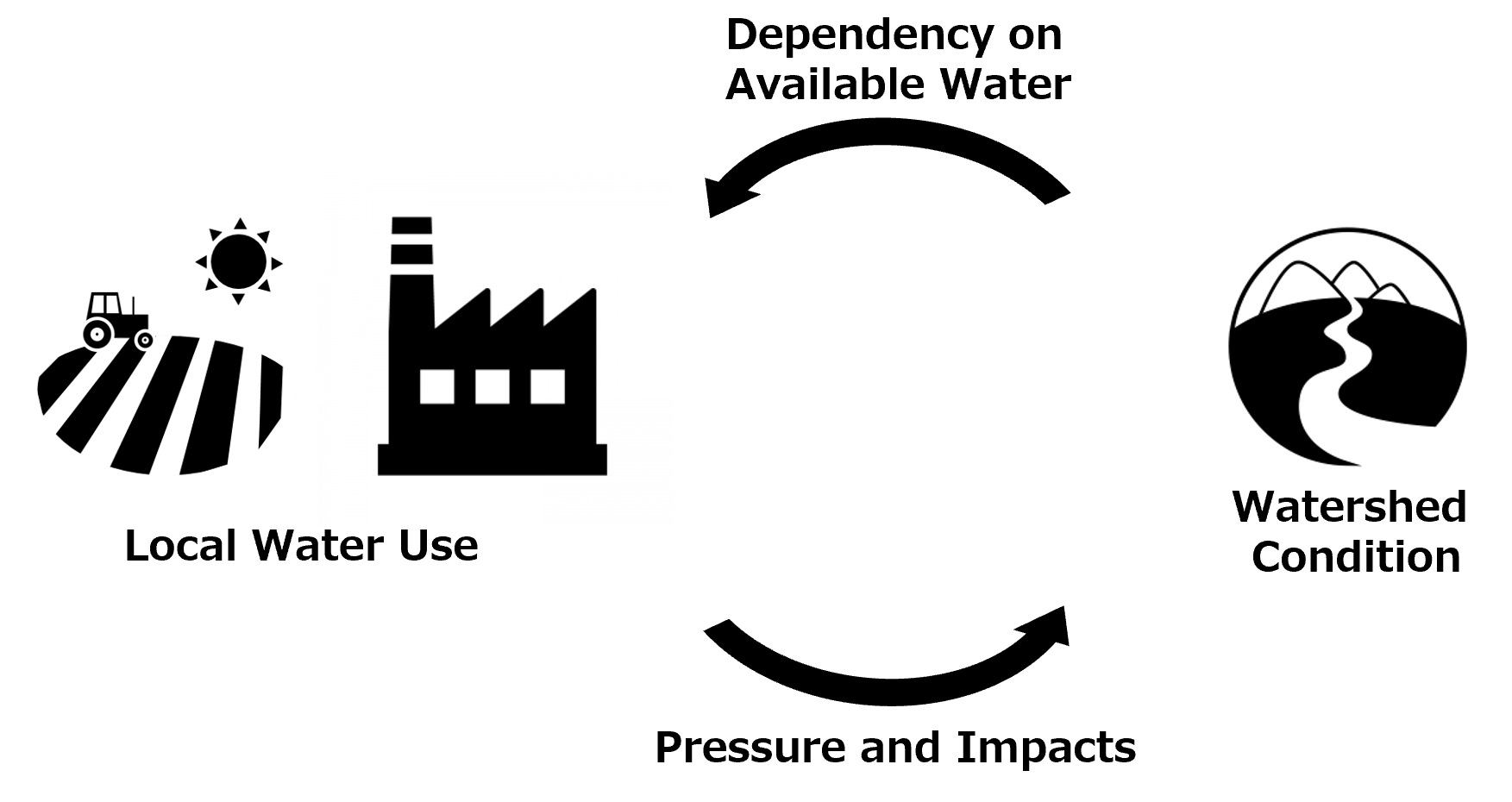News
What is Water Security Compass?
Water shortages can disrupt operations, drive up costs, and reduce revenues across industries. Since nearly every business relies on water, they share the responsibility to manage the impact of its consumption has on the environment and the water needs of other sectors. However, evaluating localized water risks requires more than just tallying available and demanded water volumes. It calls for a deeper analysis of seasonal shifts, population growth, man-made change to river flows, and the effects of climate change on available water.
Water Security Compass beta is a collaborative effort between academia and the private sector to provide companies with the information and tools that are needed to achieve responsible stewardship of water resources. Our interactive Viewer of global water risks is based on the H08 Global Hydrological Model, which consolidates recent breakthroughs in the fields of hydrology and geophysics. The H08 model simulates a watershed's available water resources and the volume fluctuations caused by natural conditions and water infrastructure operations. This information is provided in a rarely available high-spatial resolution, which can be used to calculate indicators of water risks relevant to companies and industries.

Water may become a material issue for a company if shortages impact their ability to produce or their social, environmental, and economic value. Therefore, to assess water materiality, companies need to evaluate their impacts and dependencies on water resources. In Water Security Compass beta, you will find indicators that can help sectors and businesses determine:
- What is the water-related risk due to their dependency on water resources in a particular location?
- To what extent is their consumption of water impacting the consumption of other sectors or pressuring the environment of a particular region?
More information about the indicators and how to use them is available here. Click here to launch the interactive Viewer of global water risks.
Version
We are releasing Water Security Compass beta in the hope of receiving feedback for future improvements. The first official version (v1) will include an increased set of indicators, calculated with water volumes of demand and availability corresponding to future projections that address a range of socioeconomic challenges related to climate change mitigation and adaptation. This version will also feature further additions to maps of indicators calculated for the Japanese islands at a higher spatial resolution, updated content, usability improvements for the Viewer, and detailed guidance on how to use the indicators in risk assessments and reporting frameworks such as TNFD and SBTN.
We would appreciate you sending us your comments regarding your experience with Water Security Compass beta.
About the Project
Water Security Compass beta was developed by the Research Initiative for Global Hydrologic Cycles project, a collaboration between the University of Tokyo, which conducts world-leading hydrological research, and two companies promoting cutting-edge water resource conservation.